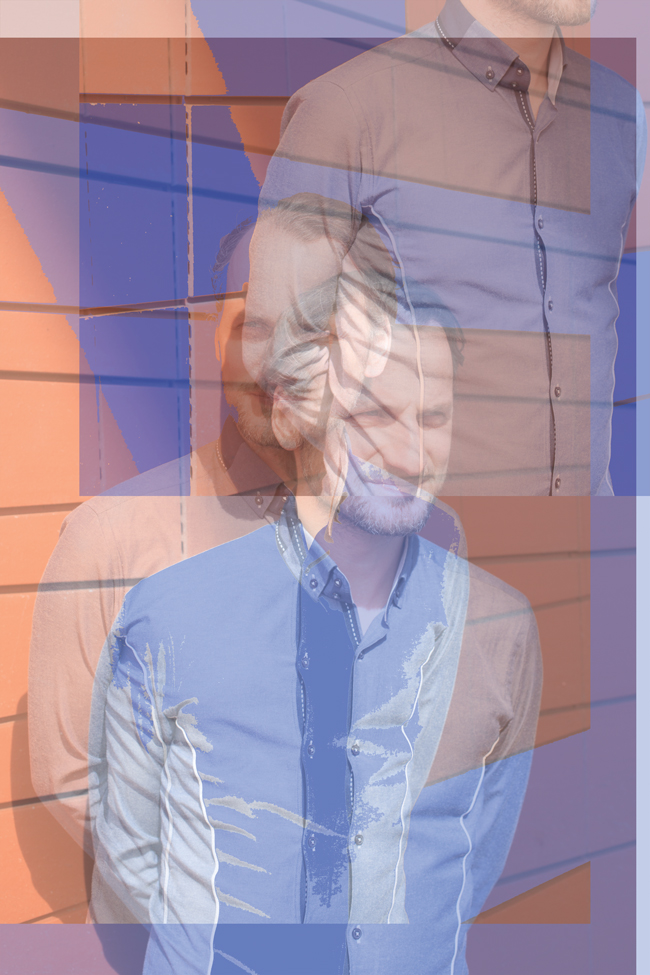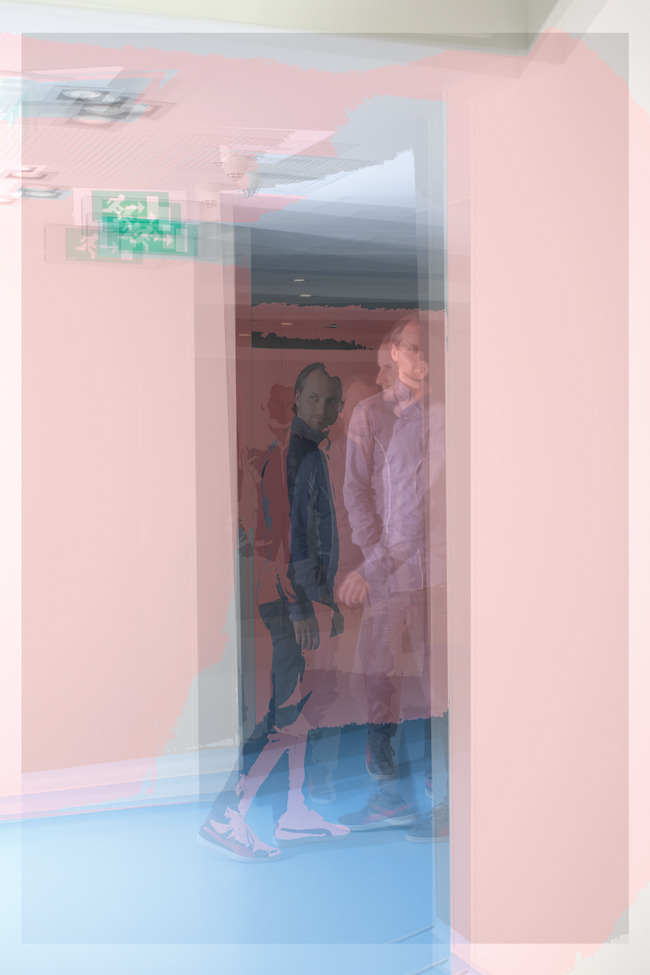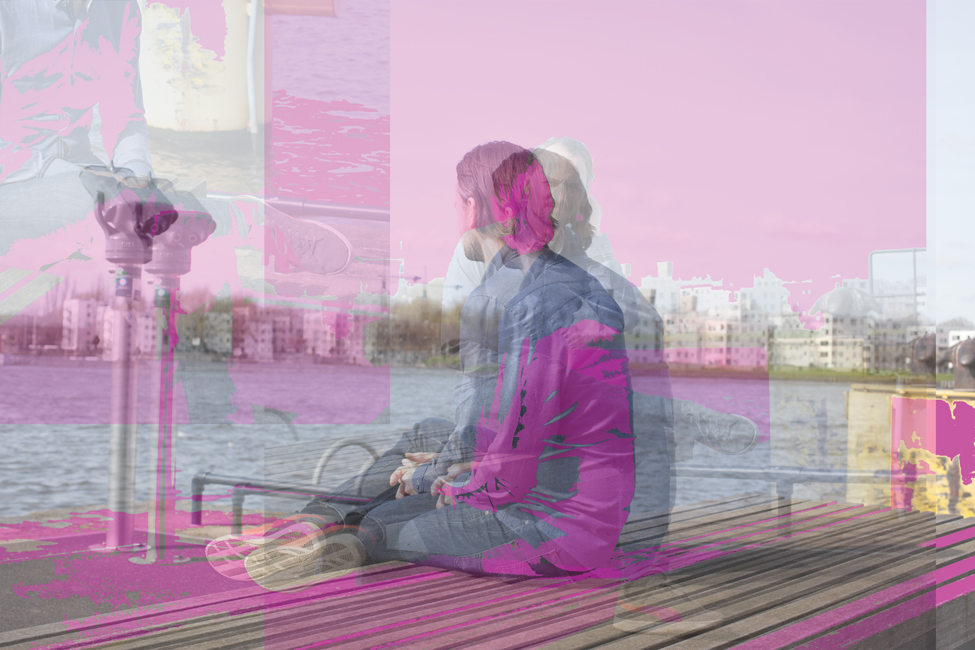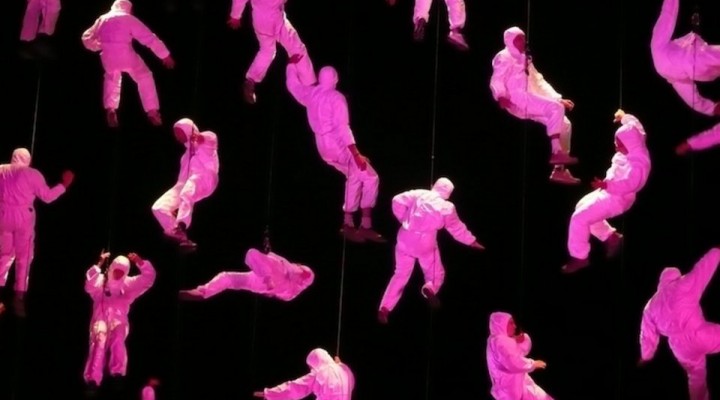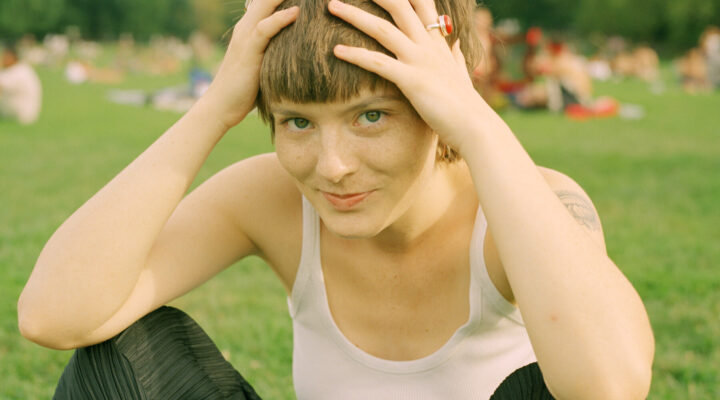Jochem Valkenburg
Interview by Brenda Bosma
Photos shot by Wessel Baarda in Amsterdam, Netherlands
According to Jochem Valkenburg, there’s room for both music and theatre on stage, in all its forms – no preference, no judgment, just as long as it’s done well. Not a surprising stance to take when you happen to be the music and music theatre programmer of Holland Festival. Though he may be outside the HF Young Circle, he is nonetheless a young figure in the cultural landscape, and a musical omnivore at that. We sat down to talk about the trials and tribulations of becoming a programmer because, Valkenburg says, nothing ever happens just like that, not even in music.
What does music mean to you?
To me, music is a vital necessity for life, comparable to food. For instance, when I’m walking through the mountains, I can do without it, but at some point I will have an urge. It becomes a physical thing. I also think music is often disregarded as a luxury item. Of course it’s not as important as water or oxygen, but for me it’s a close third.
Music as a bittersweet necessity.
I do think the necessity to create exists, yes. Not so much for myself, even though I was a maker myself for a while; I composed some pieces but I stopped, because I realised I can do without it. Then again, playing music is something I do a lot. There’s a piano in the room, so…
What do you play?
It depends. Sometimes I improvise, sometimes I play something by Scarlatti, but I’m not a pianist. No one is allowed to hear it [Laughs]. I do have a musical background. As a child I played the clarinet quite intensively, then some guitar. I played in bands for a while, made electronic music, studied audio design for a year, then switched to musicology. I did all of these things and was never really able to focus long enough on something. I do wonder now and then what might have become of all that.
And then you became a music programmer?
Well, I didn’t know it at the time, but apparently that was the case. What I did know was that I was doing something I enjoyed. Plus, I intended to be good at whatever I was doing. And I can only do a good job if I like what I’m doing. [Laughs].
‘There’s always a visual dimension to live music, even with a performance by a laptop musician’
How do you listen to music?
I don’t always sit down and dedicate my full attention. When I’m cycling back and forth to work I often play music in my earphones. A lot of what I listen to is work related. I’m curious about different kinds of music and try to expand my musical horizon as much as possible. I try to hear things I’ve never heard before.
A musical omnivore.
That’s what my Twitter bio says.
What’s your first music related memory?
My parents were both into classical music, but they had a couple of pop records. Elvis and The Beatles mostly. I played Sgt. Pepper’s Lonely Hearts Club Band a lot as a child. Also, I loved listening to Peter and the Wolf. That cat made me fall in love with the clarinet.
What kind of emotions do you associate with music?
Music can be sad or cheerful or it can be just apocalyptic noise, but as long as it’s good music, it can always evoke a feeling of happiness for me.
Can music make you laugh?
Then it’s mostly in relation to the theatrical or lyrical context. Music that tries to be funny makes me rather rebellious. Mostly because it has to rely on conventions, and I’m not fond of that. To be funny you have to break with conventions, but in music that’s done in a pretty conventional way. It just doesn’t work for me.
How about someone like John Cage? He’s been known to throw in a
drill or drop a vase here and there. Does that work for you?
There the joke lies more in the theatrical aspect, I think. You have to see him do that, see his concentrated and serious face when he drops a vase. That’s theatre.
Where does your fascination for theatre stem from?
I’m not one for dividing these worlds. There’s always a visual dimension to live music, even with a performance by a laptop musician. The more subtle version of this is where there’s not an obvious theatrical component, and you might think, Is he checking his email? Also that theatrical element has to do with a feeling of collectivity – being there together in a room, experiencing whatever is going on at that moment, that’s a fascinating notion.
That’s a stretch.
I know, but that’s really how I see it. With every idea a maker has about what they want to do on stage, there’s always a consideration for the theatrical side of things. How something looks on stage, what it would be like for the audience. There’s a certain dramaturgy to it.
You don’t have a preference for one or the other?
There’s room for both, and both need to be there.
Says the omnivore.
Right, it’s the diversity that I find fascinating. I’m not searching for that ultimate thing. In almost every genre there’s a tendency towards the theatrical. In classical music, you have the opera, but electronic musicians like Ben Frost also make operas. But I do think that music that’s just for listening, ‘just for the ears’, is rewarding and worth making.
Are you one to dance to music?
It happens, occasionally. Hearing music is always a very physical experience for me, even when I’m not dancing. I can’t sit still, so I’m always moving my big toe to the rhythm. I also feel a physical impulse when I’m listening to music that isn’t necessarily danceable. It’s also very different to enjoy music standing. In the Concertgebouw we have the 12 Hour PROM, a mini festival with concerts where you can stand, there are no seats at the floor level.
Free to stay and free to go?
Yes, but I really think that listening standing up makes for a different experience. Just the other day I was in London where this concept has been tried and tested. There you have these classical concerts for £5 where you listen while standing. People are queuing for them. I saw Mahler’s Symphony No. 2 and I stood there listening more closely. It also has to do with a sense of collectivity, I think. You’re much closer together than when everyone’s in their own seats. One is not necessarily better than the other, but they allow for a different atmosphere and context to music.
What about bringing your phone to a concert?
There’s nothing wrong with that. Just recently I read the lyrics to a classical concert on my phone because I was too late to buy the booklet. It’s a complicated subject but it’s bound to become more socially accepted. Back in the day it was odd to see people talking on their cell in the street, now it’s pretty normal. Some people are developing apps that can send notifications to the audience: ‘Now this song is up’ or ‘Pay special attention to the horns’. Like a second screen. Or live tweets appearing on a big screen.
One should be very alert! What about making calls?
No, that’s not an option, that’s about respect for the artist. But that’s something the phone doesn’t do; that’s the person who uses the phone. The phone isn’t guilty of that.
‘The best music always gives me the impression that it couldn’t have been done any other way’
It would make for an interesting cover version of Cage’s silent piece
4’33”.
Yes, and that never sounds the same. That’s the beauty of it. The tension in a room is always different.
According to Cage, music doesn’t serve any purpose, sounds just are.It’s more a way to realise that we as the listener are there, we are. You could then say that music is something that just happens. What do you think of this view?
Well, working at a music festival I’ve come to learn that nothing ever happens just like that, to give you a pragmatic answer [Laughs]. But it’s great when it appears to be that way. The best music always gives me the impression that it couldn’t have been done any other way. There’s a certain logic, an obviousness, which is very deceptive, as we all know that a lot of work and thought went into the process – certainly with Cage, who was very much the author of his pieces. In fact, there were cases of plagiarism involving 4’33”. That means Cage was able to protect the idea behind the piece, you couldn’t steal it. So music that happens just like that… I don’t think so.
